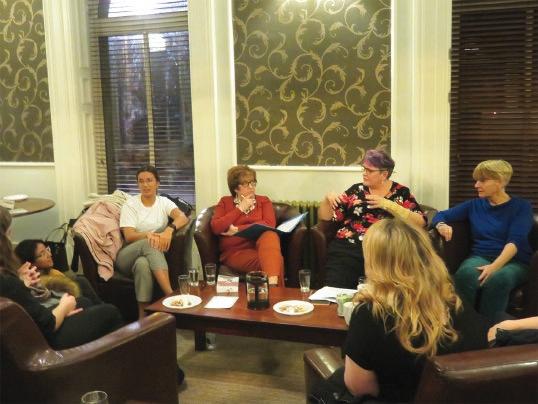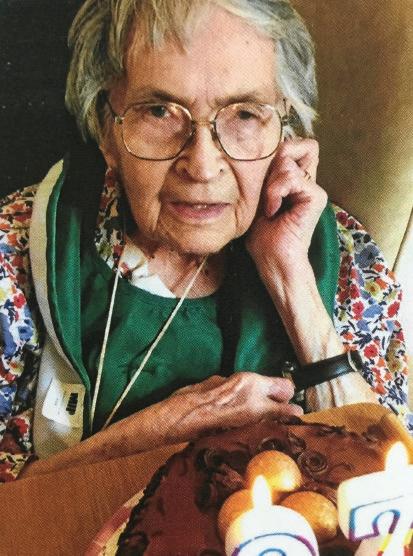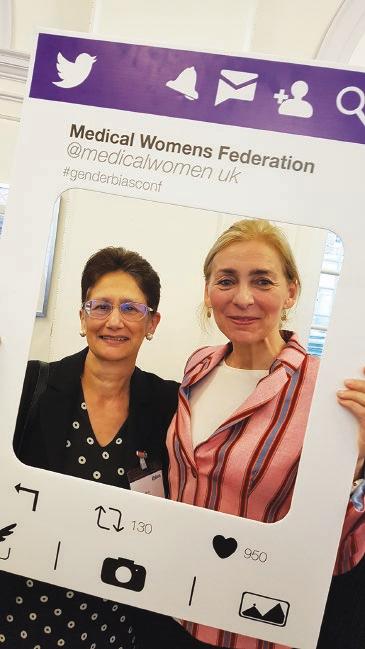
4 minute read
Returning to work
Perspectives: returning to work after anxiety and depression
Lucy Deacon is a Paediatrics trainee living in mid Wales with her springer spaniel Tinka. She is passionate about enabling teenagers to understand their physical and mental health care needs. When not busy on the wards she coaches and plays rugby, bakes lots of cakes and enjoys mindful walks in the fresh air - whatever the weather!
My time out of training did not come in a planned fashion. Having worked hard to achieve my foundation competencies and having been accepted onto the Acute Care Common Stem (ACCS) training scheme, I went from being a doctor to a patient in a very short space of time. I was diagnosed with severe anxiety and depression which resulted in an acute admission to a psychiatric hospital towards the end of my Foundation Year 2 (FY2) year. After about a month it became apparent that I was going to be off work for some time, requiring intensive treatment. Returning to practice as a doctor was the last thing I was thinking about. My depression was severe - I thought I was a terrible person and felt like a fraud. I had turned my back on medicine. I had turned my back on life too. It was five years down the line in recovery and after much support that I started to think: “I miss medicine. I miss being a doctor… Maybe I could do it again…?” It was months of mulling this over before I voiced the thought and began to explore options. Because
I was so early on in my training when I took time out, I did not belong to a Royal College and because I had been out of training so long my old training deanery had no obligations to assist me. In theory and spoken out loud things sounded straight forward, but it was a terrifying prospect and I was uncertain whether returning to medicine would be possible as I contacted former supervisors. I started by meeting with my educational supervisor from my last post. I had done some reading and had established that my route to return would be to plan a Clinical Observership - the model designed for overseas doctors to gain an insight into working in the NHS. It was important for me to plan this in a familiar environment, because I would be returning to working life. My educational supervisor was encouraging and meeting him gave me the confidence to believe my return to work was possible, in turn pushing me over the next year to return to work. Having been unwell and previously relinquished my GMC registration I also had to reapply for registration; a lengthy but manageable task. My own care team was very supportive of my return to practice and provided all the necessary reports to enable this. It was, however, difficult writing about and accounting for my
time out of medicine. I worried because I was still having out-patient treatment - which required both energy and effort committed to it. I was also presented with the prospect of self-funding my return to work; and will be forever grateful to the Royal Medical Benevolent Fund (RMBF), who made this possible. Asking for help was a challenge for me, but I could not have afforded to go back to work without their support - course, registration, insurance, memberships and book fees all add up. My final hurdle was Occupational Health clearance which frustrated me the most; a waiting game for an appointment with a clinician who could provide my clearance. I returned to work two days a week as an observer in paediatrics, fitting in my treatment around this. There was no commitment at this point which made returning easier. My consultant mentor suggested I “suck it and see” and this approach worked really well; with no pressure I was able to go at my own pace and it was a smoother transition than I had expected. After a few months a Locum Appointment for Service (LAS) post came up at the hospital and I went to my first interview in 6 years. I was able to negotiate the required day off each week to attend out-patient treatment and flourished from being back at work. Over the course of the year I completed my own treatment and applied for paediatric training, gaining a run-through training post in the area of my choice. Working in a small hospital with 24-hour consultant supervision provided both learning opportunities and the one-to-one feedback that I needed to progress in both competence and confidence. Seven years is a long time out of training, yet I bring so much back to my practice now that I did not have before. I am older, wiser and have lived through difficult times. I have regained my clinical skills with supervision and support from senior colleagues and my confidence as a doctor and as an individual has grown with every patient contact. Having lived outside of the ‘doctor bubble’, I have developed a better understanding of the lives and pressures on my patients. At times, I find myself attempting to justify my time out of clinical training, worrying that in some ways it makes me less worthy as a doctor. Yet, I realise that when I attempt to deny the past seven years, I also deny what they have taught me. Those years in my training have made me the sort of doctor that I would want looking after me.










